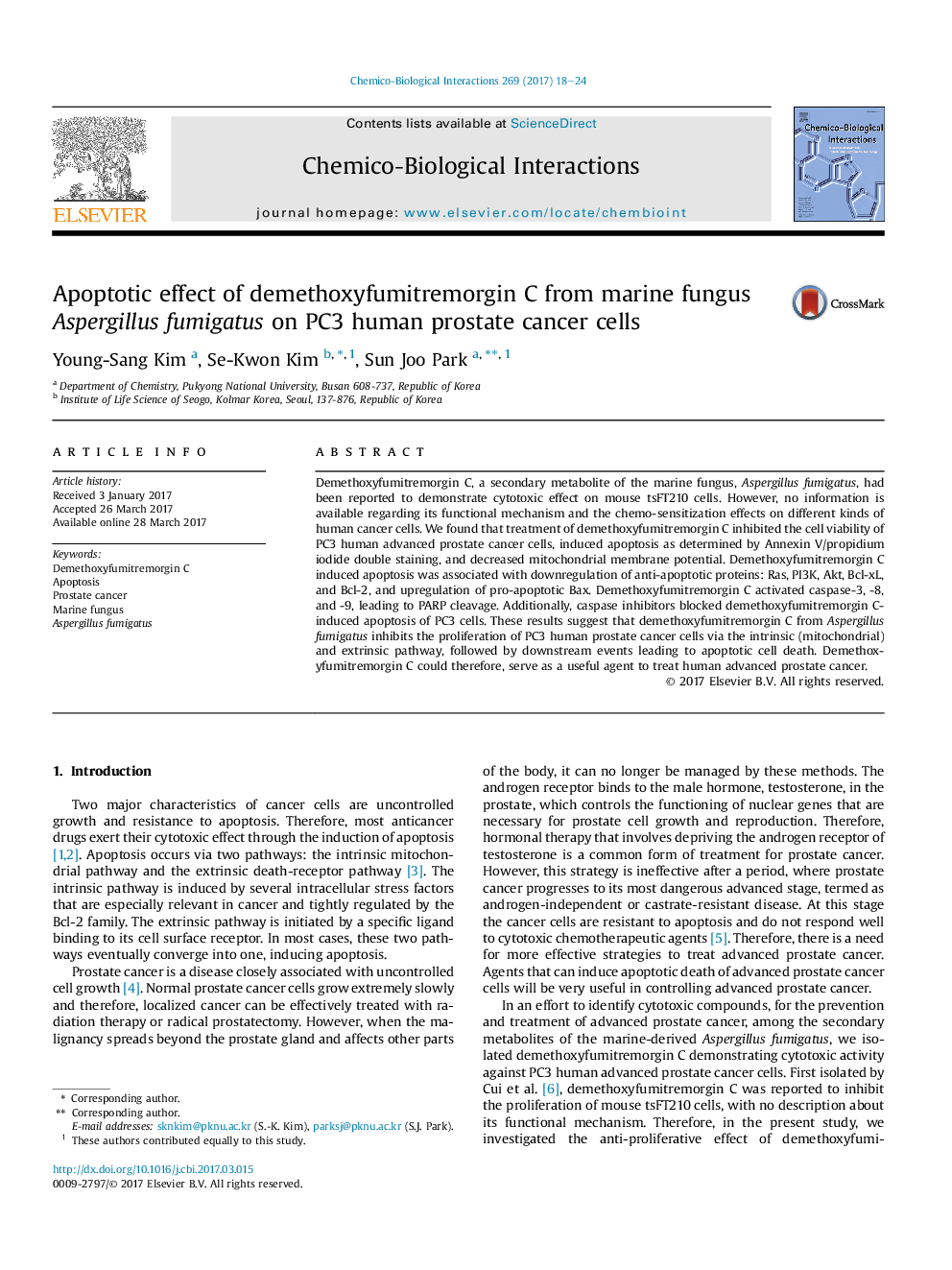| Article ID | Journal | Published Year | Pages | File Type |
|---|---|---|---|---|
| 5559584 | Chemico-Biological Interactions | 2017 | 7 Pages |
â¢DMF-C is a secondary metabolites of the marine fungus, Aspergillus fumigatus.â¢DMF-C inhibited the proliferation of PC3 cells and induced apoptosis.â¢DMF-C-induced apoptosis was associated with regulation of anti- and pro-apoptotic proteins.â¢DMF-C activated caspase-3, -8, and -9, leading to PARP cleavage.â¢Caspase inhibitors blocked DMF-C-induced apoptosis of PC3 cells.
Demethoxyfumitremorgin C, a secondary metabolite of the marine fungus, Aspergillus fumigatus, had been reported to demonstrate cytotoxic effect on mouse tsFT210Â cells. However, no information is available regarding its functional mechanism and the chemo-sensitization effects on different kinds of human cancer cells. We found that treatment of demethoxyfumitremorgin C inhibited the cell viability of PC3 human advanced prostate cancer cells, induced apoptosis as determined by Annexin V/propidium iodide double staining, and decreased mitochondrial membrane potential. Demethoxyfumitremorgin C induced apoptosis was associated with downregulation of anti-apoptotic proteins: Ras, PI3K, Akt, Bcl-xL, and Bcl-2, and upregulation of pro-apoptotic Bax. Demethoxyfumitremorgin C activated caspase-3, -8, and -9, leading to PARP cleavage. Additionally, caspase inhibitors blocked demethoxyfumitremorgin C-induced apoptosis of PC3 cells. These results suggest that demethoxyfumitremorgin C from Aspergillus fumigatus inhibits the proliferation of PC3 human prostate cancer cells via the intrinsic (mitochondrial) and extrinsic pathway, followed by downstream events leading to apoptotic cell death. Demethoxyfumitremorgin C could therefore, serve as a useful agent to treat human advanced prostate cancer.
Graphical abstractDownload high-res image (187KB)Download full-size image
